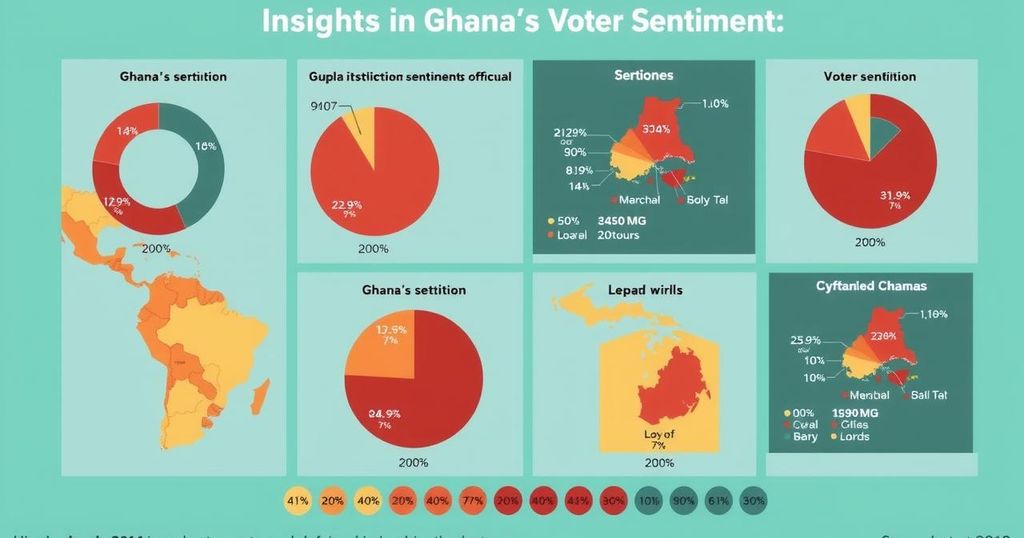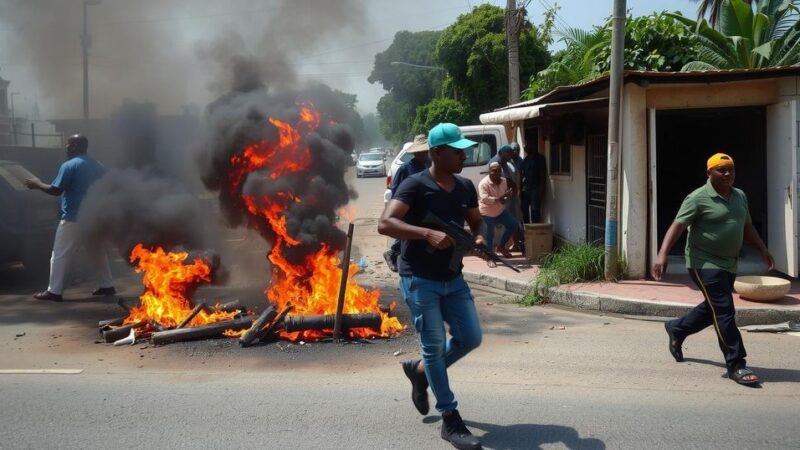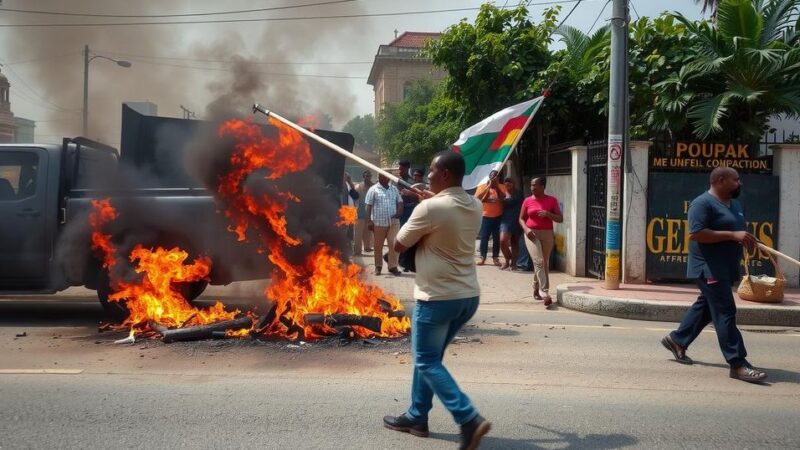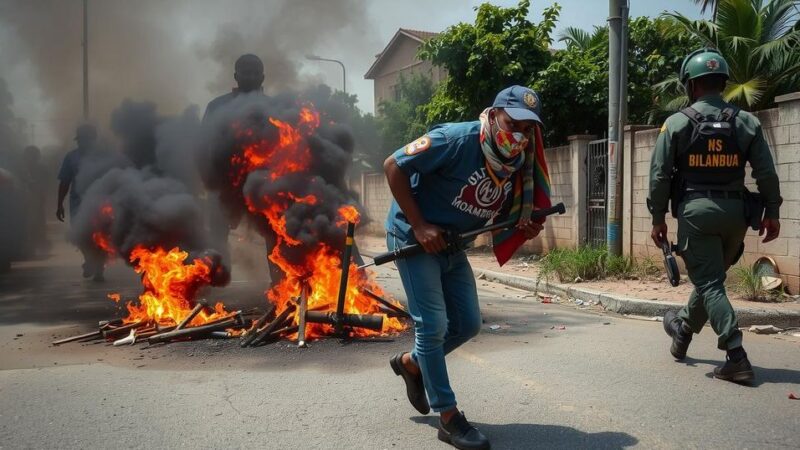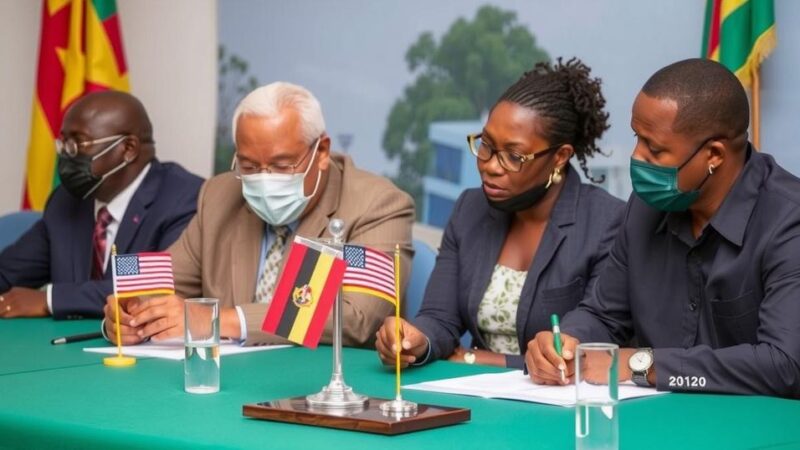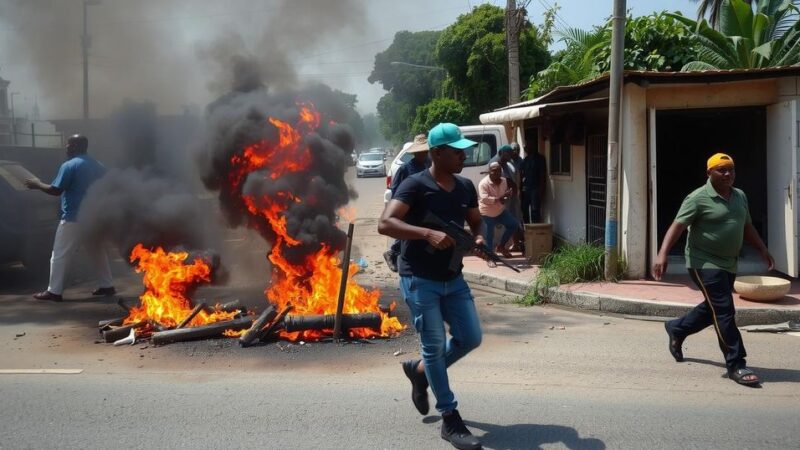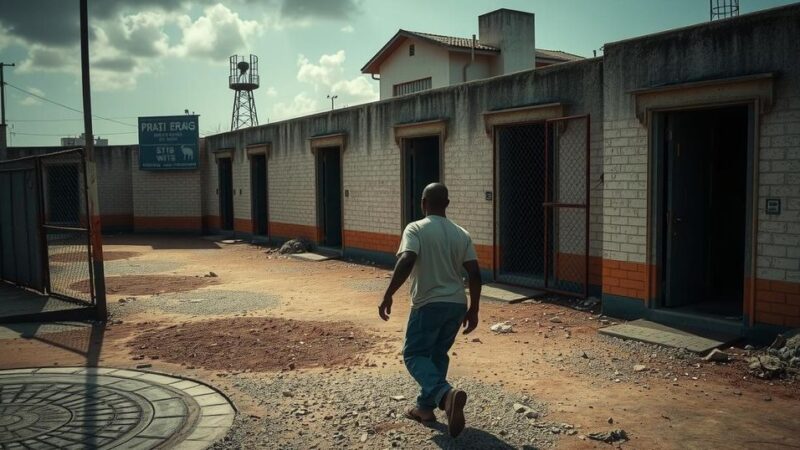Ghana is preparing for its ninth general election since 1992, as the ruling NPP seeks a third consecutive term amid rising inflation and a significant debt crisis. Economic challenges, particularly skyrocketing youth unemployment and commodity prices, are pressing issues for voters. With elections traditionally focused on short-term conditions, the upcoming vote on December 7 signifies a critical moment in Ghana’s democratic evolution, particularly for its young electorate.
As Ghana approaches its ninth general election since the revival of multiparty politics in 1992, voters’ concerns are increasingly shaped by the challenges faced under the current administration. The ruling New Patriotic Party (NPP) seeks a third consecutive term amid rising inflation, which spiked to over 54% at the end of 2022 and has impacted essential commodities severely, pushing many Ghanaians into poverty. The economic landscape is further complicated by a history of rising national debt, with over 70% of government revenue directed toward servicing loans, majorly instigated by breaches of international financial responsibilities as acknowledged by President Nana Akufo-Addo, who attributed the crisis to external factors rather than governmental mismanagement.
The youth unemployment rate has seen a drastic increase, with nearly 30% of young people aged 15 to 24 lacking employment opportunities. This demographic, making up over half of the population, is set to wield significant influence in upcoming elections, given their critical views on pressing economic issues. Gold mining remains a significant contributor to Ghana’s economy despite ongoing debates surrounding environmental damage perpetrated by illegal operations. The global demand for natural resources, including cocoa and minerals, has enriched Ghana, though household incomes have stagnated since 2017, raising concerns about the sustainability of recent economic gains.
With elections traditionally driven by immediate economic perceptions rather than long-term strategies, voters may increasingly rely on short-term developments as they head to the polls on December 7. Ghana’s stability in conducting peaceful elections amidst political rivalry serves as a key focal point for democratic practices in the region, exemplifying a nation committed to rule of law and electoral integrity despite historical turbulence. Results of this election are anticipated shortly after the polls close, continuing the trend of rapid assessment characteristic of Ghanaian electoral processes.
Ghana’s political landscape has evolved markedly since the re-establishment of multiparty politics in 1992, characterized by peaceful transfers of power between the two dominant political entities, the National Democratic Congress (NDC) and the New Patriotic Party (NPP). This significant electoral milestone highlights Ghana’s commitment to democracy and stability in an area historically affected by political unrest. The current electoral cycle arrives against a backdrop of economic distress exacerbated by global inflationary trends, rising unemployment, and a burgeoning debt crisis, sparking intense discourse among the populace regarding governance and economic oversight.
In conclusion, Ghana’s forthcoming general election encapsulates a critical juncture for its political future, especially as economic hardships and high unemployment rates weigh heavily on voters’ minds. The youth, representing a significant portion of the electorate, are especially poised to influence this election, seeking solutions to issues directly impacting their economic prospects. The hope for a peaceful electoral process remains vital, underscoring Ghana’s position as a beacon of democracy within a region rife with challenges. Voters are expected to prioritize immediate economic conditions, shaping the electoral outcomes in what promises to be a closely contested race.
Original Source: www.bbc.co.uk

